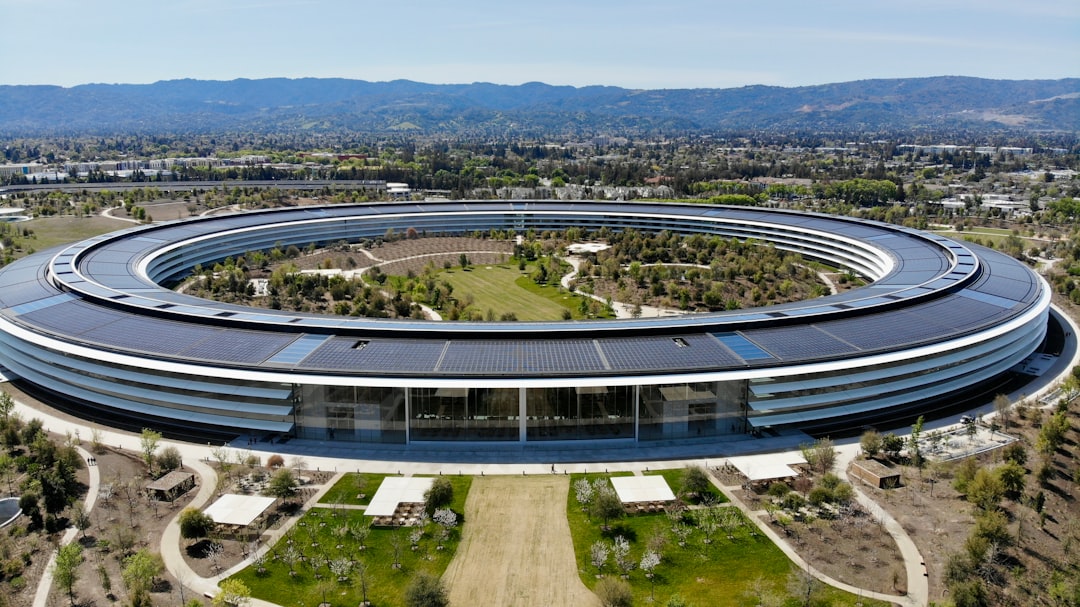'The Tech Stack' is Defining the New World Order
How technology leadership will drive the global power rankings
The world order is changing before our very eyes. The US and the UK are declining. The EU is on the rise and the future will likely be defined by China and India. The economic league tables switch faster than our kids homework on ChatGPT. The only thing we can be sure of is that the world's five biggest economies will include the US, China and India. The other places will chop and change. A bit like Twitter between layoff fests. A new battle line is being defined for global dominance and its not in the Sea of Azov, it is in tomorrow’s technology stack.
Advanced technology, increasingly called ‘deep tech’ can change society, economies and the global order more than ever. It was a promise just a decade or two ago - but with the preponderance of the internet, big data, AI and robotics, a country’s technology advantage will now, more than anything else, define its competitive advantage and future prosperity. After all, war, work and love are increasingly done by computers and not humans. Welcome to Wayne’s World.
You can build pretty much any kind of hip new app or web business with just a couple of geeks or an AI code builder. But today, that’s the easy stuff. This is not ‘deep tech’. And it is the ability to develop the advanced technology that is framing tomorrow, increasingly defining each country’s place in the economic league tables. After all, there's a bot for everything. Even slights on Meghan have shifted from the live mouth-breather, Jeremy Clarkson, to the ‘lovable’ animated kids of South Park.
Before industrialisation it was a country’s ability to farm and trade and raise an army that defined its wealth. Feudalism ruled. Today’s feudalism is waged by a few wacky autocrats in distant lands… like the House of Lords, which at least, today, are just retro for a hill full of beans. Industrialisation changed things (in most advanced economies) and brought us machinery that made clothes, and TV sets that made Meghan - and began the process of automating manual labour. Tractors replaced the ox, cars replaced the horse and cart and the British Empire replaced Napoleon. Just like like Bing is hoping to replace Google.
Industrialisation in the 20th Century brought us oil and gas and planes. These, in turn, fuelled western democracy, modern warfare and two world wars, which led us to nuclear weapons, the power of ‘military intelligence’ and the new world order as defined by NATO, the west, the conveyor belt and MacDonald’s. And all of that brought us to Vlad Put-up-or-shutup. Thanks!
They, in turn, laid the foundations for IBM to bring us computing, office machinery and the semiconducter, which, via Fairchild Semiconductor, brought us to Silicon Valley. And that takes us to today.
Silicon Valley invented the regional model for tech entrepreneurship. And its self-reinforcing cycle of innovation and advanced technology brought the power of platforms, Moore's law, more South Park and the Internet. The Internet has delivered 5 billion connected citizens and that changes EVERYTHING! Mostly because all of us can now watch South Park on YouTube. Kind of creepy?
Unless everyone figures out the secret to Silicon Valley - this place alone will continue to define our future.
Silicon Valley has a well proven model for success called excessive-monopolistic-behaviour-wrapped-up-in-a-red-hot-platform. But, its extraordinary model is one many countries and business leaders would do well to understand - but very few do. After all, it creates platforms that control the Internet and choreograph our lives. Monopolies like Apple, Google and Facebook have unrivalled power over our existance. And we thought autocrats did the controlling! In this place, with more million dollar homes than a Monopoly board on crack, it's done through enterprise.
It started with a barren dust bowl outside San Francisco that became home to the world’s first major chip manufacturers. And we don’t mean the French Fry! Intel, in particular, started a semiconductor revolution that kicked off the first populist wave of computing by ushering in the personal computer. The PC made the Internet possible (sorry Apple) and semiconductors quicly became the new gold dust. A gold dust that keeps on giving and will likely trigger the invasion of Taiwan by China just because they have today’s ‘Intel inside’: Taiwan Semiconductor Manufacturing Company.
Silicon Valley was born through the intersection of several contributing factors including a skilled science research base housed in area universities, plentiful venture capital, and steady U.S. Department of Defense spending. Stanford University leadership was especially important in The Valley's early development. Together these elements formed the bedrock of its growth and success. But did it?
The real secret to Silicon Valley’s success lay in its model for early stage investing.
You see, the real secret to Silicon Valley’s success lies in its unique model for early stage investing defined by quieter heroes like Gary Kalbach (first investor in Sun Microsystems), Bill Draper III (probably the first serial early stage investor in the Valley) and Mike Markkula, seed investor in Apple. They all had something in common. They had the courage, conviction and vision to fund a disruptive venture before others - getting ahead of the game. Markkula backed Apple when they barely had a working prototype for what turned out to be the Apple II computer, and before they even set up a limited company or the founders could afford closed topped shoes. Kalbach, famously backed Sun Microsystems when they had but a flaky prototype and a one page business plan written in pencil - presumably so they could keep rubbing out the competitors. After all, they were the 17th computer workstation company!
None of them were afraid to back a business at seed stage. Seed stage for them meant that the founders had a potential breakthrough idea, an early prototype with practically no sales and a half decent vision for how this prototype might hit the market and create a valuable business. They backed ‘the jockey’ (the entrepreneur) and they backed ‘the horse’ (the idea). They saw themselves as managers of racing stables - providing early money, mentorship and the environment for success. They recognised that if they did not get in early they would miss the boat.
These early seed investors for the first Silicon Valley darlings developed a virtual cycle of success - a virtuous circle that built Silicon Valley. Lock, stock and Elon Musk.
The term Silicon Valley is often used as a synecdoche for the American high-technology economic sector.
Today Silicon Valley is home to many of the world's largest high-tech corporations, including the headquarters of more than 30 businesses in the Fortune 1000, and thousands of startups. Silicon Valley also accounts for one-third of all of the venture capital investment in the United States. Investment that helped it to become the leading hub and startup ecosystem for high-tech innovation and create more crypto junkies than pretty munch anywhere else. Hey, it's still OK to dig for gold!
It was in Silicon Valley that the silicon-based integrated circuit, the microprocessor, and the microcomputer, among other technologies, were developed. As of 2021, the region employed about a half million information technology workers and the majority of pure tech workers in the US.
The term Silicon Valley is often used as a synecdoche for the American high-technology economic sector. The name also became a global synonym for leading high-tech research and enterprises, and thus inspired similarly named locations, as well as research parks and technology centres with comparable structures all around the world, including the Bahamas until Sam Bankman-Fried chucked kerosene on that particular party. Clusters and hubs have spread like measles at an anti-vaxxers festival. But none have anything like the track record or clout of the Valley.
They try to emulate the obvious success factors behind the original Silicon Valley including government spending and support, venture capital, a major tech research university or two and lots of Teslas to geekhood. But, none of them can easily emulate the culture for risk and true red, white and blue US style no-holds barred entrepreneurship borne from the gold digging days and Hollywood ‘just down the track’. The love of prospecting runs deep.
Perhaps most importantly, none have managed to successfully replicate the true model of early seed stage tech investing born and nurtured on the US West Coast. Indeed, today, successful seed investing is a genuine badge of honour for any leading Silicon Valley tech company, venture capital investor or angel. The likes of Elon Musk and Jack Dorsey wear it all over their sleeves. Measles indeed.
Europe thinks they can win tomorrow’s technology war with great universities and research centres. China thinks they can win it with massive government intervention plus a canny knack for IP ‘cloning’. The UK thinks they can win by reviving their somewhat backward looking London Stock Exchange and the power of the City. But, fund managers oft maketh not great early stage technology investors. The reality is that until another country cracks the code on highly effective, and ‘at scale’ seed investing, then our 21st Century future will be as much controlled by America(na) as it has been for the last seventy years.
“The technology investor will promise you many things, but there is only one thing they have to bring you - a signed cheque!” Bill Drapper III.
And, given that the future of any developed country will likely get determined by its inherent ability to innovate with technology, they would do well to learn the real ‘secret’ of Silicon Valley - ‘the seed investor’. Investors bring money, money attracts the most exciting entrepreneurs, and entrepreneurs turn tomorrow's ideas into ventures. And technology ventures create tomorrow's economy. Like all seeds, it starts with the true kernel of innovation: The first cheque!
In the famous words of Bill Draper III delivered to the Letts Journal’s eponymous editor, “the technology investor will promise you many things, but there is only one thing they have to bring to the party - a signed cheque!” And he or she who signs the first cheque for a new high tech venture might get to define tomorrow. A tomorrow that could have more impact than ever in shaping the future world order.
You could argue that whichever country owns the future ‘Silicon Valley’ will own tomorrow's economy. The US has one big advantage over the rest of the world: It owns the original Silicon Valley. But who will control the next one?
Keep up to date with the Letts Journal’s latest news stories and updates on twitter.





